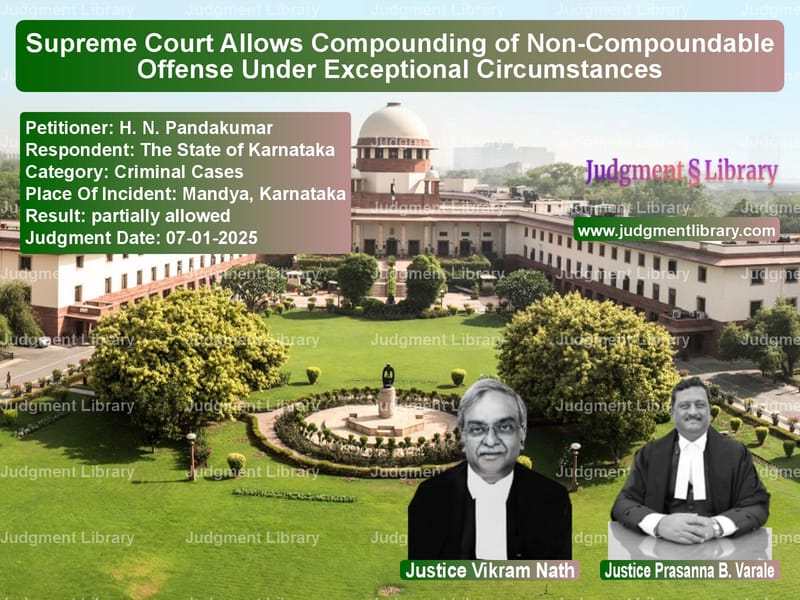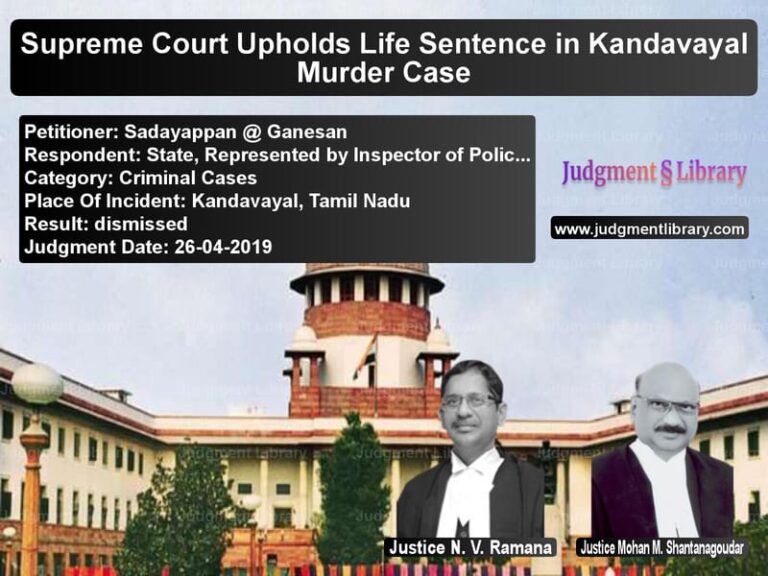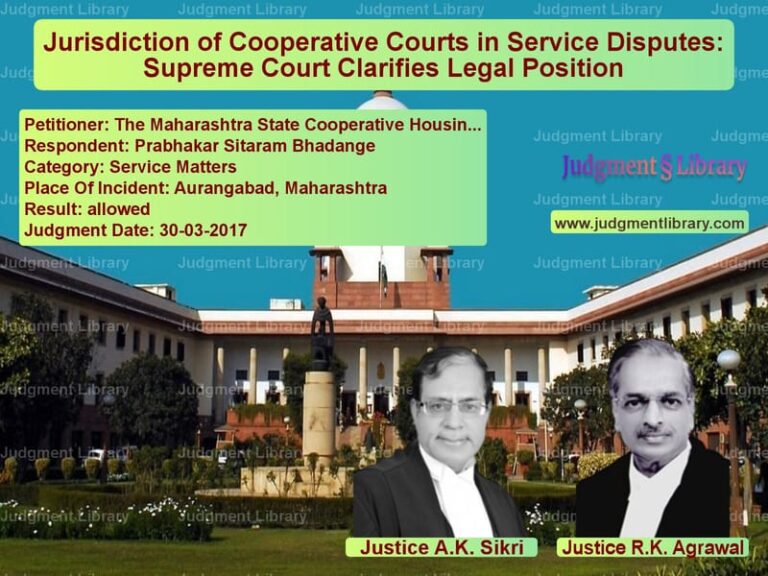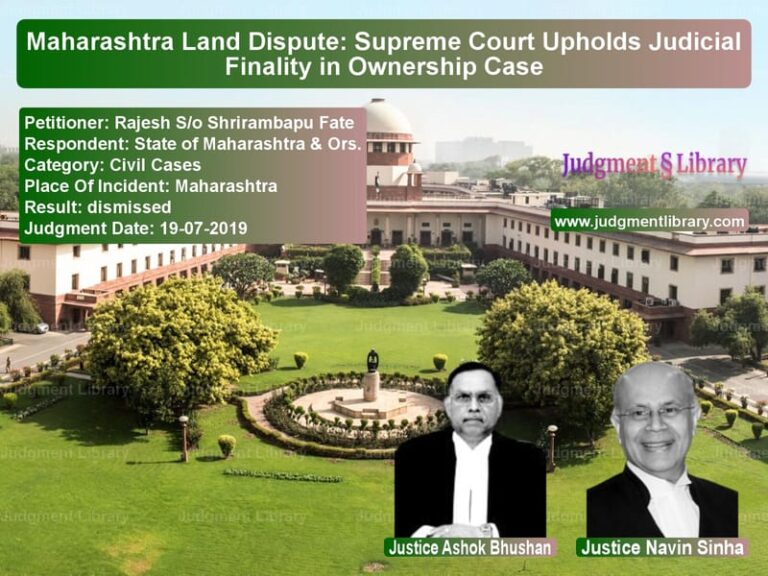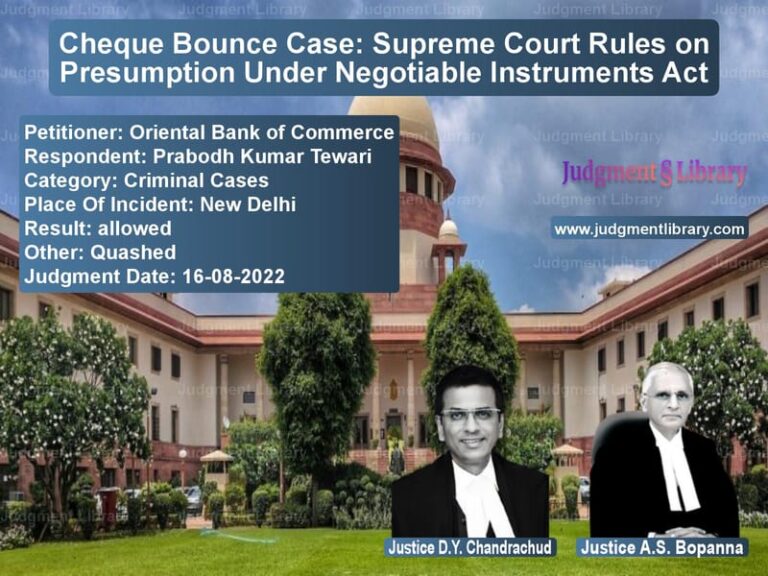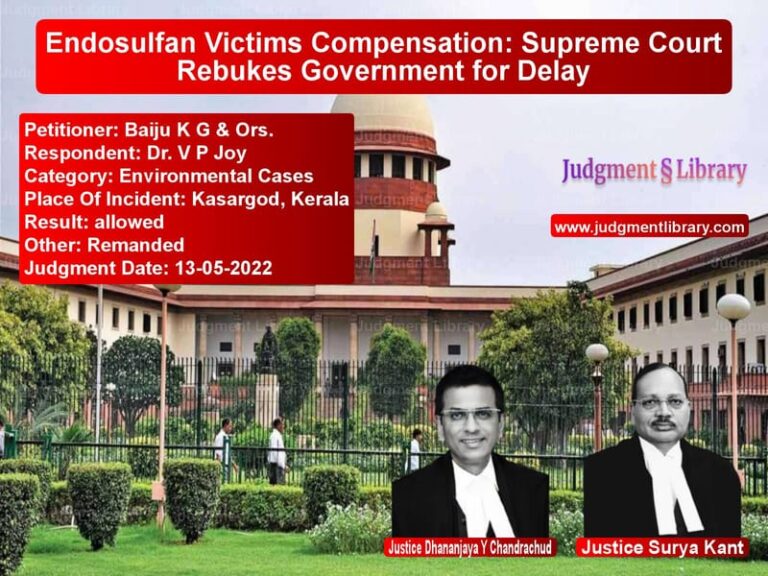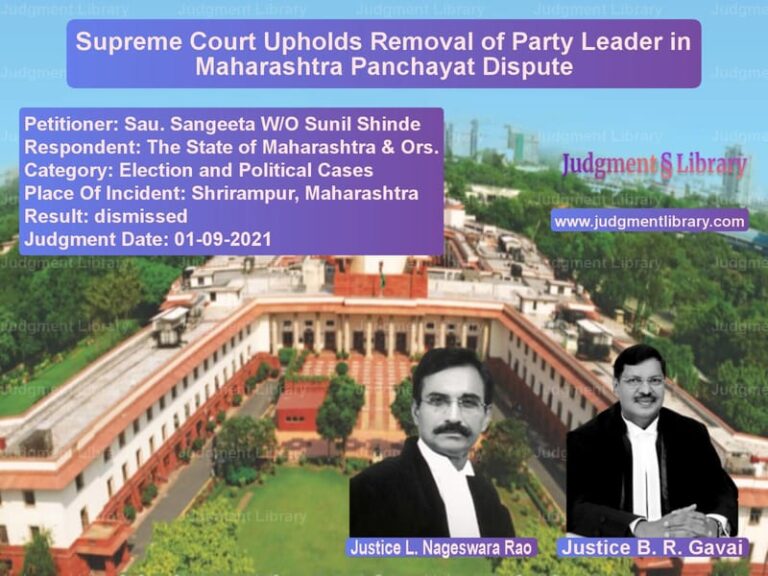Supreme Court Allows Compounding of Non-Compoundable Offense Under Exceptional Circumstances
The case of H.N. Pandakumar vs. The State of Karnataka is a crucial example of how the Supreme Court of India exercises its discretionary power to allow compounding of a non-compoundable offense under exceptional circumstances. The case revolved around a violent altercation that resulted in a conviction under Section 326 of the Indian Penal Code (IPC), 1860, and the subsequent settlement between the parties.
Background of the Case
The case originated from an FIR (No. 198/2008) filed at K.R. Pete Rural Police Station, Mandya, by the complainant, Puttaraju. The allegations stated that the accused, including H.N. Pandakumar (Accused No. 3), along with four others, formed an unlawful assembly and assaulted the complainant and his family members, causing grievous injuries.
The charges were framed under the following IPC sections:
- Section 143 – Unlawful Assembly
- Section 341 – Wrongful Restraint
- Section 504 – Intentional Insult
- Section 323 – Voluntarily Causing Hurt
- Section 324 – Voluntarily Causing Hurt by Dangerous Weapons
- Section 307 – Attempt to Murder
- Section 149 – Every Member of Unlawful Assembly Guilty of Common Offense
After the trial, the Sessions Court convicted Accused No. 3 (H.N. Pandakumar) and Accused No. 4 under Section 326 read with Section 34 IPC, sentencing them to rigorous imprisonment for two years with a fine of Rs. 2,000 each. The remaining accused were acquitted.
Appeals and Supreme Court Proceedings
Appeal Before the Karnataka High Court
Following the conviction, the petitioner filed an appeal before the Karnataka High Court (Criminal Appeal No. 218/2012), which resulted in:
- Reduction of the sentence from two years to one year.
- Enhancement of the fine amount to Rs. 2,00,000.
- Acquittal of Accused No. 4.
Special Leave Petition (Criminal) Before the Supreme Court
Unhappy with the modified judgment, the petitioner approached the Supreme Court through SLP (Crl.) No. 895/2024. However, the Supreme Court dismissed the petition on January 19, 2024, thereby upholding the conviction.
Post-Dismissal Compromise and Miscellaneous Application
Following the dismissal, the parties reached a settlement. The petitioner filed a Miscellaneous Application (M.A. No. 2667/2024) before the Supreme Court, seeking relief for compounding the offense under Section 326 IPC based on the compromise.
The petitioner submitted that:
- A compromise was reached between the two families with the intervention of elders and villagers.
- The petitioner agreed to pay Rs. 5,80,000 as compensation to the complainant.
- The complainant also filed an Interlocutory Application No. 227010/2024, supporting the petitioner’s request for compounding the offense.
- Both parties sought closure of the matter to maintain peace, as they were neighbors and distantly related.
- The compromise also resolved longstanding property disputes between the two families.
Supreme Court’s Observations and Ruling
Justice Vikram Nath and Justice Prasanna B. Varale delivered the judgment on January 07, 2025. The Court noted the following:
“While the offense under Section 326 IPC is non-compoundable under the Criminal Procedure Code, 1973, the exceptional circumstances of this case, including the voluntary settlement between the parties, warrant the exercise of this Court’s inherent powers to give effect to the compromise.”
Key Findings of the Court
- The complainant unequivocally supported the compromise, reinforcing the voluntary nature of the settlement.
- The dispute involved neighbors and relatives, making peace between them essential for social harmony.
- The compensation payment of Rs. 5,80,000 reflected a genuine effort to end the discord.
- Since all pending disputes, including property disagreements, were settled, further litigation was unnecessary.
Final Order
- The Supreme Court allowed the Miscellaneous Application and recalled its earlier order dismissing the SLP.
- Leave was granted, and the appeal was partly allowed.
- While the conviction was confirmed, the sentence of one year rigorous imprisonment was reduced to the period already undergone.
- All pending applications, including the Interlocutory Application, were disposed of accordingly.
Conclusion
The judgment in this case highlights the Supreme Court’s ability to balance the principles of law with social realities. Despite Section 326 IPC being non-compoundable, the Court exercised its discretionary powers, acknowledging the importance of amicable settlements, particularly in cases involving families and communities.
This ruling sets a precedent for similar cases where non-compoundable offenses may be considered for compromise under exceptional circumstances, emphasizing the role of justice in fostering harmony rather than merely imposing punishments.
Petitioner Name: H. N. Pandakumar.Respondent Name: The State of Karnataka.Judgment By: Justice Vikram Nath, Justice Prasanna B. Varale.Place Of Incident: Mandya, Karnataka.Judgment Date: 07-01-2025.
Don’t miss out on the full details! Download the complete judgment in PDF format below and gain valuable insights instantly!
Download Judgment: h.-n.-pandakumar-vs-the-state-of-karnata-supreme-court-of-india-judgment-dated-07-01-2025.pdf
Directly Download Judgment: Directly download this Judgment
See all petitions in Bail and Anticipatory Bail
See all petitions in Attempt to Murder Cases
See all petitions in Fraud and Forgery
See all petitions in Juvenile Justice
See all petitions in Extortion and Blackmail
See all petitions in Judgment by Vikram Nath
See all petitions in Judgment by Prasanna Bhalachandra Varale
See all petitions in partially allowed
See all petitions in supreme court of India judgments January 2025
See all petitions in 2025 judgments
See all posts in Criminal Cases Category
See all allowed petitions in Criminal Cases Category
See all Dismissed petitions in Criminal Cases Category
See all partially allowed petitions in Criminal Cases Category

